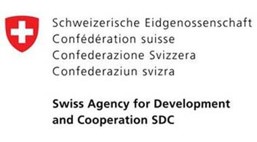February 19, 2021 : National dialogue on COVID-19 effects on the most vulnerable groups in Rwanda : Stocktaking from TI-Rwanda project entitled “Social Accountability Tools to explore COVID-19 response effects on beneficiaries of social-protection programs in Rwanda”
CONCEPT NOTE
1. Background and Rationale
Coronavirus (COVID-19) pandemic has been a significant threat to human development and has triggered socio-economic instability worldwide. The serious, widespread, and profound effects of the COVID-19 pandemic have taken the global economy almost to its knees. As the deadly Coronavirus pandemic is rearing its ugly head the world over, many countries have been compelled to enforce drastic measures. The impact of the pandemic varies from country to country and will most likely increase poverty and inequalities at a global scale.
Rwanda was the first country in Sub-Saharan Africa to impose a total lockdown. In a country where many survive on hand to mouth, Rwanda imposed several measures to curb the spread of the COVID-19 such as a total lockdown on 21 March 2020, re-imposed lockdown in several villages in the country, nationwide curfew, lockdown Kigali… etc. Although COVID-19 effects vary from one socio-economic category or business sector to another, the pandemic has struck disproportionally the poor families especially those in former category 1 and two in Rwanda.
To mitigate the COVID-19 side effects on one hand, the Government of Rwanda introduced several policies and initiatives to support vulnerable citizens especially those who can’t afford to feed themselves daily because they used only to survive by what they have earned daily. On another hand, in this period of the COVID-19 crisis, corruption risks increased due to the restriction measures taken by the Government and emergency response to the pandemic.
In line to its mission and as a contribution to the Government of Rwanda response to the Covid-19, TI-RW has initiated a project funded by the German Federal Ministry for Economic Cooperation and Development (BMZ) through Deutsche Gesellschaft für Internationale Zusammenarbeit (GIZ) titled “Social accountability tools to Explore Covid-19 response effects on beneficiaries of social-protection programs in Rwanda”.
2. Objectives
COVID-19 in Rwanda brought up several challenges regarding socio-economic recovery, which are now being addressed by the government, international and national organizations, but also by individuals by providing direct support to the most vulnerable population. However, while the need for a rapid emergency response is immense, fair distribution, inclusiveness, transparency, and anti-corruption must be assured.
TI-RW’s project, therefore, analyzed the enabling environment, such as the implementation of specific policies, their effects, and loopholes. With this in-depth analysis, TI-RW aimed to :
i. Assess the COVID-19 response effects through social accountability tools and its related response measures on the most vulnerable groups, and
ii. Formulate policy recommendations for responding to emergencies in an accountable, equitable, and transparent way.
3. Project components
The Project was broken into five activity clusters to ensure sound achievements of the project results :
ACTIVITY CLUSTER 1 : Mapping beneficiaries of VUP-Direct support (DS) and VUP-Public Works (PWs) during COVID-19 response (March 2020 - June 2020) in 15 districts of Rwanda
ACTIVITY CLUSTER 2 : Conduct a Public Expenditure Tracking Survey (PETS) in VUP-Direct Support to assess the impact of COVID-19 on the livelihood of the most vulnerable people (Ubudehe Category 1) in 15 districts of Rwanda
ACTIVITY CLUSTER 3 : Conduct a Public Expenditure Tracking Survey in VUP- Public Works to assess the impact of COVID-19 on the livelihood of beneficiaries of VUP-PWs in 15 Districts
ACTIVITY CLUSTER 4 : Conduct a Quantitative Service Delivery Survey (QSDS) to assess the fairness, integrity, transparency, accountability of services and support provided to Rwandans during the COVID-19 Pandemic
ACTIVITY CLUSTER 5 : Community empowerment in monitoring the implementation of preventive measures of COVID-19 and report possible malpractices of government officials while managing the COVID-19 crisis in 15 districts
3. Objective of the event
National dialogue will explore COVID-19 effects on the most vulnerable groups in Rwanda, building on the project research findings as documented under the activity cluster 1, 2, 3 and 4.
4. Participants
The event will host participants from different stakeholders’ organizations active in social protection programs, civil society organizations, media practitioners, and development partners.
5. Date, Place, and Time
Date : 19th February, 2021
Time : 9:00am-12:30am Rwandan time
Venue : online via Microsoft teams

















